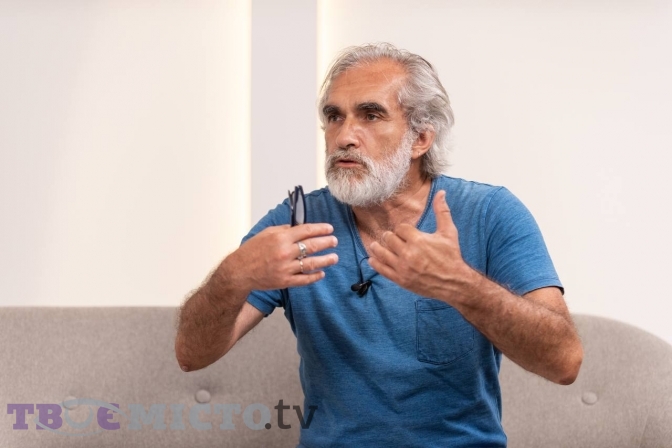
The war is a catastrophe, but we have to exploit it fully, – Yaroslav Hrytsak
[For urgent updates please follow Ukrainian Freedom News on Telegram]
Many say that a public intellectual is a person who wants popularity. Doesn’t it undermine the very term?
There are different understandings. I consistently use it because I believe I am fighting for my professional identity. This is one of those terms that came into use in the 1990s. People laughed at it, but soon got used. For me, this is not just a talking head. That is, a person who, for whatever reason, appears on television or YouTube, talks about Putin today, and how to cook borscht tomorrow. In reality, this is someone who has a proven track record of success in his field, but occasionally, out of necessity, he steps out onto the public podium to say something he considers very important.
I would like to remind that we are speaking on the 176th day of the war, the prologue to which was Putin’s historical opus. In it, he tried to explain why Ukrainians do not have the right to a sovereign state and are one people with Russians. You wrote a response to this.
Yes, I did. I didn’t debate with Putin, but accepted the thesis of Illarionov, who is also a public intellectual (Andrii Illarionov is an economist, Putin’s ex-advisor, a supporter of the West’s tough response to Moscow’s aggression against Ukraine and other democratic European countries – Ed.). He clearly said: «Since this article has appeared – expect military aggression. Putin’s linguistic aggression precedes the military one.» And that was very important to me. There is no point in arguing with Putin, what he wrote is stupid, and it’s impossible to argue. But it was an important signal that something very serious was coming.
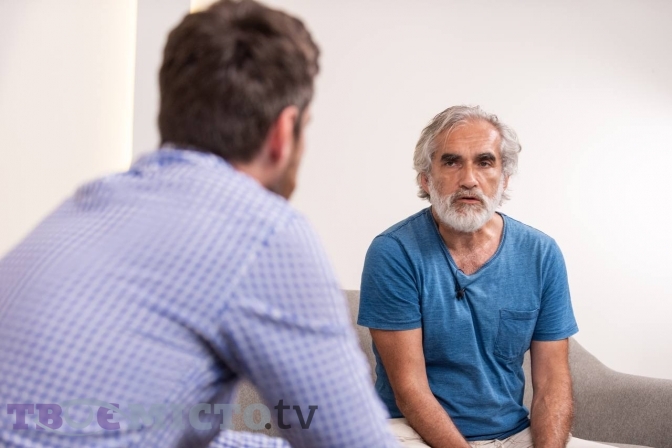
To some extent, history became the cause of this war.
It’s already called a war around history. Although there is a question of how much Putin himself believes in this, how deep it lies in his heart, if he has the latter at all. Maybe it’s just putting smoke in our eyes. But one way or another, the central argument is historical.
Now, we are hastily trying to rewrite the school curriculum, because there are many «toxic» things that do not correspond to the spirit of the times. How do you see it?
I don’t know this, because the last time I rewrote history for school was in the 1990s, when Ukrainianization began, and we were composing a curriculum. Natalia Teploukhova, who tragically died, deserves a good mention. At that time, she was responsible for drawing up study programs and deliberately chose Lviv residents for this work. It was important to her that the program be in Ukrainian, even though me and a group of colleagues were much younger.
Since that time, I have not done this, although I wrote «Essay on the History of Ukraine», and the book «Overcoming the Past. Global history of Ukraine». The «Portal» publishing house, which issued the last one, has ambitious plans to do something for the school. However, it doesn’t want to do it through the state, as there’s not much hope that it will work. «Portal» invited a group of Kyiv history teachers from good private schools, who wrote six guidebooks connecting global history with the history of Ukraine [under the curatorial support of Yaroslav Hrytsak, the educational team is developing a system of educational materials. They’re covering all historical periods: from antiquity to the present, and also have different levels of mastery, namely for preschoolers, junior and middle school, senior school and students]. A child psychologist also joined to this work, advising how to present information, what to emphasize, because it’s easy to traumatize a child’s psyche. Two books from this project have already been published, but I don’t know how it will develop further, because the war stopped everything. What children are currently learning in school is a minor disaster, and definitely not what we should have.
What should we have? Do we need a common vision of history?
And what is a common vision?
It’s usually talked about a shared pantheon of heroes, some markers...
Obviously. Without it, common vision cannot exist. The historical program is one of the reasons for the nation’s existence, it is the nerve with which the nation can react. I will quote Ernest Renan’s thesis from the text «What is a Nation?», with which I agree: «a wrong understanding of history is the basis for the nation’s existence.» The nation needs myths in the good sense of the word. Not fiction, but good big stories that can «cement» freaks, self-centered people into a single community, ready to understand what it is for and what it should do. Understand that in times of crisis, you have to sacrifice something: your salary, or your life. And the school should provide them with these myths.
So that students understand that myths are not a cynical distortion of history, what Putin does. I explain it to them in a simplified way, saying: «Do you have a dog or a cat? Have you tried teaching them multiplication tables? Does it work? It’s the same with a textbook, which is a way of telling the multiplication table to someone who can’t understand it at the moment.»
This must be done because the state must take care of its citizens. The greatest challenge is how to integrate everyone into this community. No secret that the history of Ukraine is written in our country: it’s the history of Kyiv, Lviv, and sometimes Kharkiv. Is it true? It’s unlikely that there are Cherkasy, Sumy, not to mention Donetsk. The fact that it was taken away from us is caused by the exclusion of Donetsk from our history. Moreover, how to integrate Crimea? We are used to portraying the Crimean Tatars as oppressors, but they need to feel themselves in this story. We want every city and region to feel part of the common history.
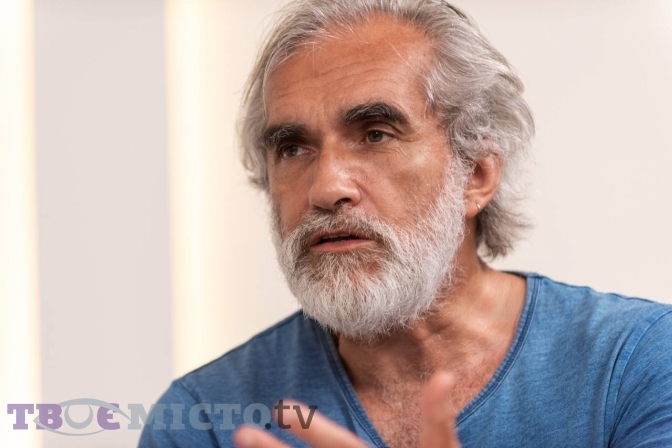
Before the war, I was in Vinnytsia as a tourist and felt that the city had problems with its own identity. There is Lviv chocolate, there is also something from Kyiv, but there is nothing of native origin. Except for the Pirogov estate, which became the cultural centre of the city. What, actually, should we do with Pirogov, how to expropriate him?
Very easy. Pirogov is one of the few who was very sympathetic to the Ukrainian movement and understood its importance. I’m not saying that he was Ukrainian, but that movement was so strong that Pirogov was somehow in solidarity with it. Thus, it can be included in our history.
Vinnytsia has a lot to show. For example, a very revealing success story of the 19th century. This is the sugar industry that arose in an empty place and fed the entire Russian empire. We can talk about the Tereshchenko [one of the most influential family of Ukrainian entrepreneurs in the XIX century]. And here is the paradox: we look at these landowners through the glasses of Chekhov’s «Cherry Orchard», as a degenerating class that must leave the stage. But here, the landlords are successful businessmen, including Poles, whom we have to show differently, because they very often become Ukrainians in Ukraine.
It happened so that Hrushevskyi actually became the founder of the Ukrainian state. It is obvious that his «History of Ukraine-Rus’» had influenced it fundamentally.
I doubt it, because no one has read it (Laughs).
Maybe, at least, his work «Who are Ukrainians and what do they want?».
It was read. Hrushevskyi wrote like a typical historian of the 19th century: 10 volumes, 12 books... This is a scientific work, a positivism that is difficult to read, because there are almost only facts and a little interpretation. After his death, Ukrainian historians were reprimanded for not writing about the tendencies but merely providing details. This need was especially felt in Ukraine in the 1930s. At that time, Polish teachers worked to excite the Polish myth of the greatness of the nation, while Ukrainian teachers had only facts without narratives that could be contrasted.
We describe the year 1917 through Hrushevskyi, Vynnychenko, Petliura, and Skoropadskyi, that is, the elite in Kyiv and partly in Lviv. But we don’t see what happened beyond that and below that, we don’t see the peasants who suddenly became Ukrainians.
It seems that a demonstration took place in March that year, when as many as one hundred thousand people took to the streets. Was Kyiv Russian-speaking then?!
This is a known fact. When Hrushevskyi came to Kyiv, he announced that it was necessary to organize a Ukrainian rally, because everyone except Ukrainians was rallying. The locals laughed at him: how to make a rally out of something that does not exist? Russian newspapers mockingly advised him and Petliura to buy tin soldiers in stores and organize a rally with them. He was apprehensive about that idea, but when coming to Volodymyr Square, he saw that it was filled with blue and yellow flags. So, where did so many Ukrainians come from, if there were none? It is this unpredictability that makes our history interesting, even though it’s complicated. It must be described in a way that people believe it. Why are so many Ukrainians now fighting like this, if they were given two or three days to live? Now, we see a very similar process.

I don’t understand how it happened. On the eve of the war, opinion polls showed that we are divided, with different values and attitudes towards Russia, but 80 per cent of respondents supported the idea of independence. Why is this idea so important that people are now proving it at gunpoint?
Before that, the results of polls showed that in whatever year the referendum of December 1, 1991 is repeated, the result would be the same. The percentage of support only increased, especially in the years when the Russian threat loomed. The highest level was during the annexation of Crimea, but surges and peaks were also visible during the conflict that arose due to Tuzla, the Russian-Georgian war.
Ukrainians, with their inherent aggressiveness and choleric nature, can disagree with many things, but when it comes to critical things, they react normally. They are like a hedgehog that curls up into a spiky ball. No offense, but we have a perfect perception that a nation should have that 100% every day. But this does not happen in any nation in any case. When I read books that say that Ukrainians have not yet managed to develop a common vision of Ukraine, I smile sceptically. Do Poles have a common vision of Poland? What about Germans, Americans? Point a finger on the map of those who have a common vision of the future? The advantage of strong nations is that all visions come together, and this is very important!
Now, we are also united in one thing. I always say that Ukraine is divided, but not split, the lines of division are weaker than the general vision. Ukraine can be metaphorically called an archipelago. There is a sea that separates us, and islands of agreement and consensus that grow into an archipelago, then gradually merge into land that will become a national continent. Since 1991, something has been constantly added. After the declaration of independence, there is a certain consensus about language, then the most strange and unpredictable, but very strong about the Holodomor. Next – regarding the European Union and NATO. We see it all coming together.
We Galicians pay special attention to what divides us because it hurts us. And we are separated by language, the personality of Bandera. We focus on this and say there is no nation, but when the Maidan begins, or something critical – then the nation already exists. Nations appear in times of crises, revolutions, they appear as if from nowhere. In times of peace they become silent, indistinct, based on smaller things. But wars have a strong influence on this. It was so in 1914-1917, so it is now, we see the same effect.
Do you recognize the importance of myths for the creation of a nation? Does this mean that you should self-censor when writing books aimed at popularizing history?
I have no censorship. I understand moments that will be annoying, that people will not accept. I advise those who will read my books: choose a corner in the room of which you would not regret much, because when you read a book, you’ll throw it there from time to time. I do not intend to create a myth, let it be created by those who deal with textbooks and manuals and receive a salary for it. I am talking about something else – a diagnosis: where exactly the past hinders us, and where it helps. Relatively speaking, I’m discussing the strategy of our victory, which cannot be understood without starting to reevaluate your strengths and weaknesses. And not for fame.
Without critically reevaluating the past, one cannot understand the scope of this strategy. Because you can demand that Lviv become like Paris, but it would be quite good if it became like Krakow or Wroclaw. In 1991, we hoped that in a few years, Ukraine would become like Germany, but it would be good if it became like Poland. Because history imposes certain limitations, and to understand them, you need to look at the past differently. In order to have a wider comparative context, you should also analyse how it was for others: better or worse. And here, it is not necessary to compare Ukraine with Russia. In this context, Singapore, South Africa, Argentina, Israel, America of the 19th century are very important. But this is not included in Ukrainian books and is interpreted separately from our history, although in fact, it is very connected.
What creates this general context and why is it missing?
I once heard a piece of advice from a very good historian. He spoke about the Velvet Revolution of 1989 – the peaceful overthrow of the communist regime in Czechoslovakia as a result of street protests and about gaining Ukrainian independence: «If there is a difficult problem you cannot solve, expand the context. It allows you to see things more clearly than you currently understand.»
I am trying to show what Russia and the «Russian world» is, which I believe really exists. But it rests not only on language. This is a territory, a civilization with very low indicators, a short life expectancy, and a high level of corruption. This is not only today, it has roots. Where did it come from? Why did others succeed and not us? And does Ukraine «fail» at all? Maybe we don’t see something but the success is present?
The key thesis of my book is modernization. Because the world we live in now is created by modernity. If it wasn’t for this world, we wouldn’t do interviews, there wouldn’t be television, and it’s not known whether I would reach this age. Because in a non-modern world, we would live for 25-30 years, go to healers, write letters for unknown reasons, which would take months from one end of the world to the other. This world is not just comfortable: it allows man to free himself from the limitations of nature and history. I believe that the key symbol here is the «golden billion» against which Putin is fighting. It was he who gave birth to this form of modernity because without Europe and its children, none of this would have happened.
Russia’s main problem is that it never succeeded. Although it claimed so, everything was a big slouch: Stolypin’s reforms ended in the revolution of 1917, Stalin’s – led to the collapse of the USSR. The same will happen with Putin. In this sense, I have great doubts about China’s future. To put it simply, I believe that Ukraine is Kyivan Rus’ plus the West, and Russia is Kyivan Rus’ minus the West. Both inherited the same civilization but different elements, and we added our own. Because Kyivan Rus was neither our state nor theirs. In general, this is an invention of the 19th century, because in reality, it was just Rus’. This ancient state and our state are like a caterpillar and a butterfly. And it was important for us not only to inherit Rus’, but also to overcome its legacy, which happened due to the spread of Western culture.
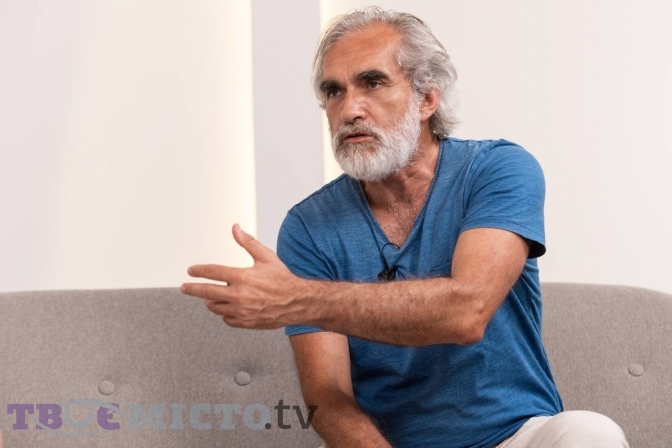
Does the Russian version of this common heritage continue to define our perception?
Russia tries to monopolize this story, but doing so turns it into a completely different narrative. In case of Putin, It is defined by the opposition of Orthodox Rus’, which comes from Volodymyr the Great, to the Catholic West, which seems to pose a threat to us. In English, it can be called rubbish, that is, «a big heresy».
The German historian Christian Rafensperger, who studies Rus’, indicates that 75 per cent of the marriages of the Kyiv princes were to the West, to Catholic countries, and this was not an obstacle. It’s important to understand that Kyivan Rus’ was a typical European empire from the very beginning. Back then, Europe meant Christian civilization. This was before the division into West and East, which turned out to be fatal.
In the 11th and 12th centuries, a network of universities grew in Europe, but there was none in Rus’ at that time. They did not exist either before or after the Mongol invasion, although no one forbade their establishment. Conventionally speaking, there was no increase in knowledge between the 10th and 16th centuries. Where are those Newton, Descartes, Shakespeare, Cervantes, Omar Khayyam of Orthodox Rus’? Couldn’t they all be exterminated by the Mongols? The latter treated cultural buildings with respect, did not destroy churches, did not kill monks. In medieval Europe, education and science took place around monasteries. Then why was this not the case in Rus’? There are many such questions.
I begin my book with a quote from Vasyl Stus’ diary, written during his second imprisonment, when the first news about the emergence of the anti-communist movement «Solidarity» in Poland arrived. He enthusiastically writes that this will put an end to communism, «it’s a pity that I’m not Polish». And among other things, he asks why this is impossible in Ukraine.
These are two peoples living next to each other. But Stus believed that the reason for this was the adoption of Christianity from Byzantium. I will not say that he is right, but he asks the question historically well. Oleksandr Kazhdan, being a Byzantologist of Jewish origin, claims that there is a lot in common between the forms of Christianity we adopted from Byzantium and communism. And he knows what he is talking about, because he grew up in the Soviet Union during Stalin’s time, defended his PhD thesis on «Agrarian relations in Byzantium in the 12th – 14th centuries», published a book on the same topic, although the publishing houses did not want to print it, because they believed that it was... a hidden criticism of Stalin and collective farms (Laughs).
Such questions must be asked because this is something that stretches from distant history. Why were the central regions so passive in 1991, when there was talk of Ukrainian independence? What happened then? Why did Lviv and Kyiv do something, but Zhytomyr, Vinnytsia, Cherkasy did not? We have to find answers to this.
If we see that there are many problems in our tradition, does this mean that we should modernize it, get rid of inertia and conservatism?
I write about it and try to explain it. In fact, I believe that Ukrainians have already done a lot of work and managed to modernize a lot, which is why we were reborn into that «butterfly». Without this, we would remain a «catterpillar», as in the case of Russia, which has turned into a «cow» which scares everyone, clicks its teeth and flaps its hooves despite its weakness. Ukraine itself arose with the first wave of modernization, its spread from the West to the nearest territories – the Polish-Lithuanian Commonwealth and Orthodox lands, present Ukrainian and Belarus. This is the first wave of civilization, not America or North Africa. It is here that important changes are taking place that are turning Rus’ into Ukraine. And the next wave reaches the Russia during the reign of Peter the Great with the trimming of beards. But Russia does not succeed in this, no matter how hard it tries, after attempts at change there is a «rollback», and it continues to remain an empire. It does not bear comparison with Western countries not only in terms of weapons. Regarding the number of printed products, Russia in the 19th century barely reached the level of the Netherlands. In terms of number per capita, Lviv had higher indicators than Moscow. And this proves a lot.
It is important that Ukraine appeared as a product of modernization, although it still needs to be completed. But this is not the only point: it’s necessary to combine tradition and modernization. As Ernest Gellner said, Britain is the only country that does not need to modernize because it already is. But Japan managed to combine one with the other in an amazing way. Because if you carry out modernization based on tradition, you become stronger. Ukrainians got such a chance and have been successfully doing it for the last 30 years. And this is indicated by the fact that we are fighting against Russia.
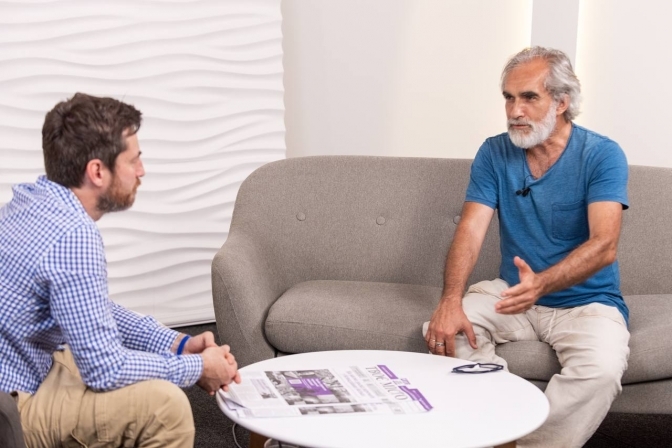
Volodymyr Dubrovskyi said: if a nationalist vision wins in Ukraine, where there is no place for the Russian language and culture, then he would not want such a Ukraine. On the other hand, many of my acquaintances are worried that the Ukrainian substrate, that used to feed Ukraine, will lose its concentration.
I know him well and greatly appreciate. He contributed to the development of economic thought, he is an emerald! He is Russian-speaking and at the same time, an expressive patriot. He said these words even before the war. And I would very much like to know what he will say now.
It seems to me that Russian culture is dying out in Ukraine now. Not because of the Ukrainians, but because Putin is destroying it. He destroys the Russian presence in Ukraine with his missiles and artillery.
In general, it is the same here as with tradition and modernity. We have a Ukrainian version that was created in Kharkiv and Kyiv, which was exported to Galicia and accepted here. This is a vision of a monolithic Ukrainian-speaking Ukraine like Poland and Hungary. It is believed to be a formula for success, because the Poles, Slovaks, and Czechs succeeded.
My thesis: language does not have a decisive influence on modernization, because there are successful examples based on both one language and culture and two languages and cultures. I’m talking not about language, but about political reforms leading to economic reforms. Now, there is a concept of an ethnic nation, based on ethnic markers, and a civil nation, when all who live in that territory are loyal, regardless of ethnic, linguistic or other origins, coexist. Previously, in the 1930s, they were very much in conflict, but in the last 30 years, they’ve been getting closer. Globalists claim that this division is quite artificial, because there are no purely ethnic nations in the world, with the possible exception of Iceland. There are no purely civil ones either, because even the American one is built on an Anglo-Saxon core. There is a belief that every nation is civil, only for each it depends where its core is, around which everyone unites.
In our independence, there were, relatively speaking, two cores – Lviv and Donetsk. And whoever would win, we would live according to his example. We will not talk about Donetsk, because this idea has collapsed. But the most important thing happened, and this is the effect of the last 20 years: the concept of a third Ukraine appeared. Not east or west, but the center of Ukraine – geographical, political, of a middle property and age. And this is Kyiv, which, as Professor Roman Shporlyuk said, speaks like Donetsk and votes like Lviv.
Why did this happen? We have gone through a deep modernising transformation, moved from the industrial to the post-industrial period, when the main product is produced not from smoke from a factory pipe, but from steam over a cup of coffee. This is a colossal change that began in the 1960s but has yet to reach us. A new middle class has appeared, an informational one that lives off its head and the products of sale, non-state, the least corrupt one. Now it’s the most evolutionary force in the world, because it wants changes, self-expression, political freedoms. It stands for such strange things as dignity, which cannot be measured and which has no meaning in normal life, but for which people revolutionise. Over the past 20 years, we have experienced it, but not quite understood. We do not understand why the first and second Maidan happened, because we are moving to the categories of language or what Yanukovych was like. Yes, these are important things, but they are events. We do not see the current itself, the lower wave, the current, on the basis of which these events develop. I believe that 10 years after the collapse of the Union, we slowly began to move into the post-industrial era and joined the global wave, which is now spreading throughout the world, creating the concept of the struggle of two worlds. This is an attempt by the Arab world, Armenia, and Belarus. It is created by a group of mostly young people who want to join the «golden billion» because they believe that this is their way of thinking, expressing themselves, etc.
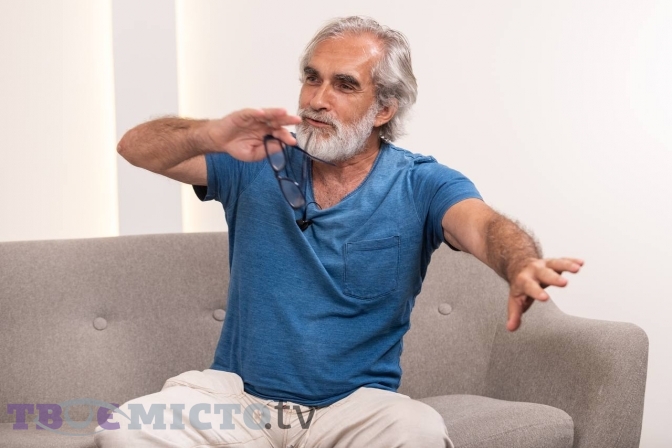
But it’s easier for some people to join by simply leaving the country. Here it is important that this magnet of patriotism remains, which would continue to work.
Yes, if only pragmatic things were discussed, everyone would leave. But for some reason, we suddenly formulate these things in some non-pragmatic way, and thus we have Maidan, Revolution of Dignity. But what is dignity? It means living with dignity on one’s land. You can’t take your dignity with you, you can only stay here with it. This movement is difficult to estimate, there are no parameters for it. That is why it’s often said that these are not revolutions at all. This is a very strange type. One of their hallmarks is that they start when things are getting better, not worse. This is their phenomenon. They don’t look like the storming of the Winter Palace or the taking of the Bastille, but have the character of a big hippie happening or a rock concert. People take to the streets and stand there for weeks, months, until they achieve the desired result. In my book, I give a comparison with the protests in Chile, Santiago, in 2019. The similarity of the order of events is surprising: it all starts with something small (in the case of Santiago – an increase in the price of the subway). Students go out to protest, they are beaten by the police, and the next day, there are already a million protesters in the square. Then, everything happens according to the Ukrainian scenario – three fronts, the first is young guys with «Molotov cocktails», the second – those who provide them, paramedics and all the rest, on the third a small public celebrates. In Chile, there was even a Russian factor, a Russian-speaking community, which demanded that the president deal with these revolutionaries, because, they say, these are American influences, while they are for Orthodoxy. We see the same sequence.
There is an important book by Sergei Guriyev, a Russian economist who left for Paris after what Putin made, and is now vice-chancellor of Sciences Po. I write about these processes, but he better described the logic of the development of the system, how Putin and those like him act as gendarmes of the counter-revolution.
Putin saw that Ukraine could finally «leave».
Putin sees Ukraine as a personal threat to himself. When did he decide to fight with Ukraine? It’s hard to tell. From the very beginning, in 1991, when the Russian opposition and Yeltsin agreed to «let go» of Ukraine, their reasoning was pragmatic: «You can let go, because this is a «failed state» that sooner or later will collapse and turn back, it will beg Russia.»
Kosiv remembers how Yeltsin in 1993 in Moscow, opening a monument to Yaroslav the Wise, said: «This is our Russian prince who shows how to collect lands.»
The Russian elite, whether communists or opposition, never agreed to the existence of Ukraine as a separate state. We forget this and often think of Putin as an FSB, KGB officer. It is true, but he started his career precisely in the environment of Sobchak and Yeltsin.
Andrii Illarionov had a good interview with Latynina on June 4. At that time, he was an adviser to Putin and described in detail the chronology of Putin’s decision regarding Ukraine. He first realized that Putin wanted Ukraine in the summer of 2003, on the anniversary of the Baptism of Rus’. Baptism and Volodymyr are his biggest «point», because he is Volodymyr Volodymyrovych. He considers himself the embodiment of the hypostasis of Volodymyr the Great and his deeds. Orthodoxy is very important to him, although it has a decorative value. He is probably a non-believer, more like the devil, obviously. But when, at the celebration in 2003, Putin visited Kyiv at Kuchma’s invitation, he realized that Kyiv is what he wants, that the centre of the civilization he imagined is right here.
Russia had to be made a great world power. This was the main thing for Putin. I heard this idea from many acquaintances, and Illarionov spoke about it in more detail. Ukraine is the key here, it’s decisive. Because, as someone said, without Ukraine, Russia is just Canada, i.e. a big country. With Ukraine, it is the USA, i.e. it can be a world player.
When you do something big, you have to look back. Trump said: Let’s make America great again. The key here is «again», that is, it once happened, this is a strategy of going back in time. And in this strategy, someone tried to suggest a simple solution to Putin: it is possible to prolong the existence of Rus’, to prove that Russia is older than Ukraine, in a simple way. Before Rurik [the legendary founder of the Kyiv rulers’ dynasty] and his brothers came to Rus’, to these Slavic lands, the first city, the capital they founded, was not Kyiv, but Ladoga. The so-called Ladoga project was created to celebrate the creation of the Russian state earlier than Christianity in Rus’ (Laughs).
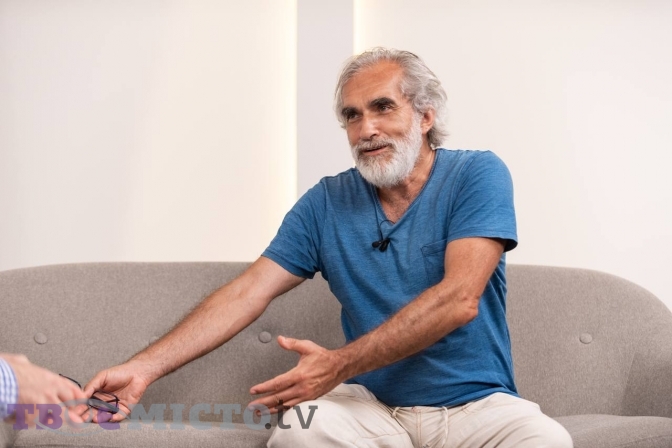
Do we have to fight for the Rus’ heritage, that we are Rus’ peope? So like Arestovych, who says that we are Rus’ people and asks why did we give what was ours? Indeed, you come to Warsaw, for example, and there you find pierogi ruskie («Russian varennyky»). Although you understand that they are Ukrainian, that’s how they would say it now.
Until the 19th century, most Ukrainians considered themselves Rus’ people, but this does not mean they considered themselves Russian. As Antonovych joked, Kyivans spoke neither Little Russian nor Russian, but little in Russian. It was Rus’ civilization. The normal term used for the local population in Lviv is Ruthenians. The Rus’ka Church on Pidvalna street is not Russian. It appears not as Catholic, but as Eastern Christian. It was an Orthodox term.
Special about these people is that they knew who they weren’t: not Catholics, Muslims nor Jews. But they could not explain who they actually were for a very long time. This is precisely the process of modernization in traditional society, no matter how strange it sounds. Therefore, most of the names that these nations have are not their own, they are not naming themselves that way: they are called like that.
In the early 1990s, I attended a forum of the Ukrainian community in Poland. It tried to outline who Ukrainians were, why they weren’t Poles, and it did not succeed...
It’s impossible to describe. Exactly. But back then, even the question was not put like that. I will give you memories I write about in the book about Franko [«Prophet in his homeland. Franko and his community (1856 – 1886)», 2006]: at the end of the 19th century, local Galicians asked: «Who are Ukrainians? What kind of term is this?» There is a funny conversation of a local host, now we would call it Ukrainian. He came to a rally where a young guy from Lviv, a Rus’ man, Ukrainian radical, spoke, and convinced them that they were all Ukrainians. That host went to ask who those Ukrainians were. The only one he found was a local Jew, an innkeeper, who said: «But you are not Ukrainians! That’s such an insult! Ukrainians are those who live on the outskirts of the village, they are poor. And you are in the centre, how can you be them, don’t even qualify for it!»
But let’s return to the concept of Ladoga. Putin came there, he was constantly told about this project, he even took part in the excavations, but did not find the amphora. He looked at all this and said: «No, this is not Kyiv. We need Kyiv!»
It is very important that we understand this. Because Putin is not talking about Donbas, he is talking about Kyiv, the destruction of this state, which is called something else than Russia.
In the winter of 2014, many foreign journalists gathered at Hromadske media, and we talked about it. I said this is important to Putin, because we had some common history. He claims it, it’s important to him that Kyiv is still not in Russia. My interlocutors were surprised, they didn’t believe me then, they laughed.
Because they themselves do not remember their history. It’s worth wondering what global history is for. This is not something new. In the same way, the French and the Germans fought for the legacy of Charlemagne: whose was it, who was he – a German or a Frenchman? The empire covered the territory of modern Germany, France and Northern Italy. This great dispute lasted until the Second World War and did not end even with Hitler. It’s just that after the end of the war, there was a reconciliation, they jointly developed the concept of a common Europe and called Charlemagne its father. These disputes are already in the past because France and Germany have overcome history. Putin, on the contrary, is immersing us in it more and more.
And what to do with it? Why can’t the Russians admit that they have a little more in common with the Horde? Gumilyov suggested doing it.
Ask the Russians about it, not me. I cannot know that. But Putin’s idea is to say more and more that Russia is something anti-Western. Hence, the figure of Alexander Nevsky, who is pulled out of nowhere. They glorify the Battle of Chudsky Lake and the Battle of the Neva, though is not known if it happened at all. Even if it did, it was very insignificant. But they are important for mythology. Because, they say, Nevsky fought against the Swedes and against the Germans, against NATO (Laughs).

We participated in the Battle of Grunwald in 1410, and there are no conclusions from this.
Yes, but they forget to say that Nevsky was a vassal of the Mongol Khan. That is, there is a kind of preparation. If Putin were talking only about the empire and its global status, he would have someone to take as a hero. Alexander I is the victor of Napoleon, but he is also the author of liberal reforms. This does not suit him. For Putin, the best are Stalin, Dzerzhynskyi, Alexander III, Peter I, Nicholas II, who were great statesmen, but were not liberals and, most importantly, pro-Western. It is important for him to choose these anti-liberal modernizers, because such modernization works only for a short time, captures, like China or Stalin’s empire, but ends in collapse. I think the same awaits Russia. But the struggle between Ukraine and Russia is about something very important, because it’s a struggle for the future of the world, for what will be its formula – relatively speaking, Western or Russian-Chinese. Putin talks about it all the time, believing that he is leading a rebellion against the «golden billion», believing that he is fighting not against Ukraine, but against NATO. And the whole story is prepared in relation to this. We emphasize that Russia was a European state, and Putin insists that it fought with Europe. How to get out of this? I do not believe that the Russians can be convinced of anything – it will take a generation, maybe two. But I believe that the best answer here will be the Armed Forces. This is the best argument against everything. Because first new realities come, and only then, new narratives begin.
So, how can we modernize in these conditions, is it even possible?
I will quote myself, what I write about in the book: strangely enough, modernization very often happens because of wars. They are the greatest modernizers in history, as sad as it sounds. In general, I believe that Ukraine emerged from two world wars and the revolutions that took place between them. Without them, it would take a very long time. War accelerates all processes, turns the impossible into possible.
But it is very important to understand that no nation has modernized only through its own efforts: it is important to have external support. Without its spectrum, it will not succeed in the political outcome by any effort. Whether it was Polish modernization or Jewish, the creation of Israel, it is very important.
What is important in this war? For 20 years, we knocked on the door of the European Union, on the door of NATO. In 2014 we talked about the Marshall Plan – and everyone laughed at us. We were told that it would never, never happen. This was said by Prodi, then head of the European Commission. But where is Prodi now?... And it took us three months.
For me, the emergence of the Marshall Plan is a key condition for modernization. Modernization is possible only with the cooperation of factors. This is a state in which mainly a young political class comes to power, which either really wants to reform, or it is done at the call of society, its most active group, which offers no other way out. The entire society will never be in favour of modernization. It is, relatively speaking, the middle class that I have already mentioned. But there must be a third element: external support.
That is, the «golden billion» should say: «Okay, they are like us, we can share a little bit with them.»
You definitely said that. In the 2000s, even before the Maidan, one conference in Lviv discussed whether Ukraine could become a European state. We were told: «Never, never, because you did not have democratic revolutions like the Hungarians in 1956, the Czechs in 1968, the Poles in 1981.» And how to say it now after two Maidans?
I will formulate the place where Ukraine stands. It is a stayer, not a sprinter, because we have a difficult history: Orthodox civilization, the Russian Empire, communist civilization – the most savage. All these factors prevent modernization. I won’t say that we are in «prison», we just don’t have a good set of history.
But the strategy is how we should overcome this history. I am convinced that Ukraine should further go this way, only it will be slower and more violent, with problems, discussions about language and Bandera, with corruption and all we know about. Because of this, we will often complain, even though it gives us bread – namely to journalists and publicists, because we like to criticize and in this, we look «fluffy» and beautiful. But this is a very important result of this process. This is a classic case of a young nation-state, and we have its classic problems. Do you want to understand modern Ukraine? Look not at modern Poland, but at the Poland of Pilsudski, not at modern America, but at the America of the 19th century.
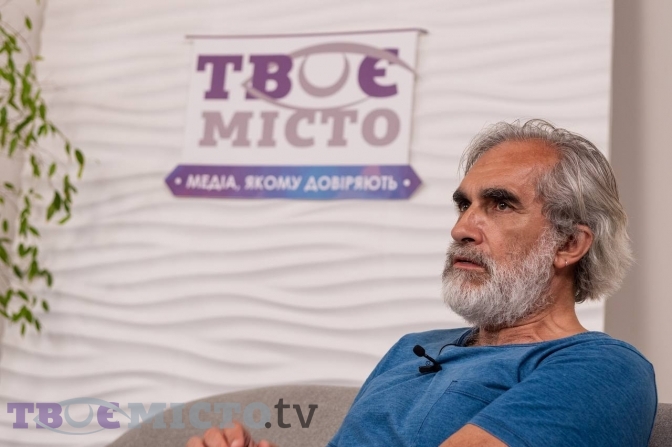
Most of the political nations that we know were formed in the 19th and early 20th centuries. Can we finish this formation now, in the age of the Internet and global communications? Was it actually laid in the last century?
Nation building is like work in the countryside: it never ends. It cannot be built permanently. As Ernest Renan said, a nation is a daily referendum. It’s like riding a bicycle: you have to pedal all the time, because if you stop, you’ll fall. Pedalling is a constant modernization, keeping the tradition in mind. Tradition is a bicycle, but the motor and the rest are modernization.
Ukraine has passed the Styrian distance and now has the problem of the last kilometre. We’re almost there, but «almost» doesn’t count. It is necessary to complete the last fragment of modernization – political reform and the key part of it – judicial reform. If we start it, then that’s it. The classical form begins, the energy from below is launched. As Pavlo Sheremeta says, 85 per cent of economic success comes from the initiative of the population, just give them the opportunity to earn. In this kilometre, we trampled both for Poroshenko and for Zelenskyi – sometimes we come, sometimes we leave. It is the most difficult, and it is not a fact that we will pass it.
War allows you to pass it very quickly. And not because Zelenskyi is good or bad, but because there will be pressure from the West, aid in exchange for reforms. Western governments clearly say through the mouths of their ambassadors: «You cannot leave these matters! NAZK, the Anti-Corruption Committee, the appointment of a prosecutor – everything must be completed. Do not expect to receive money just like that, because you fight beautifully. You have to do something about it.»
That is, there is no way to flee these demands?
In this, there is a chance to pass this kilometre very quickly. And if this happens, although I do not say that it will happen for sure, my prediction is very simple: Ukraine becomes a Central European «tiger», something like South Korea. This is what my Polish friends keep telling me: «You don’t understand how much potential you have. But it must be done, completed.» Because war is a catastrophe. Of course, no monetization, no success justifies war, but if we already have it, we must exploit it to the full.
Andrii Saichuk spoke
Text: Marichka Ilyina, translated by Vitalii Holich
Photo: Tvoe Misto/ Ivan Stanislavskyi
Follow us on Facebook and Instagram. Lviv Now is an English-language website for Lviv, Ukraine’s «tech-friendly cultural hub.» It is produced by Tvoe Misto («Your City») media-hub, which also hosts regular problem-solving public forums to benefit the city and its people.


